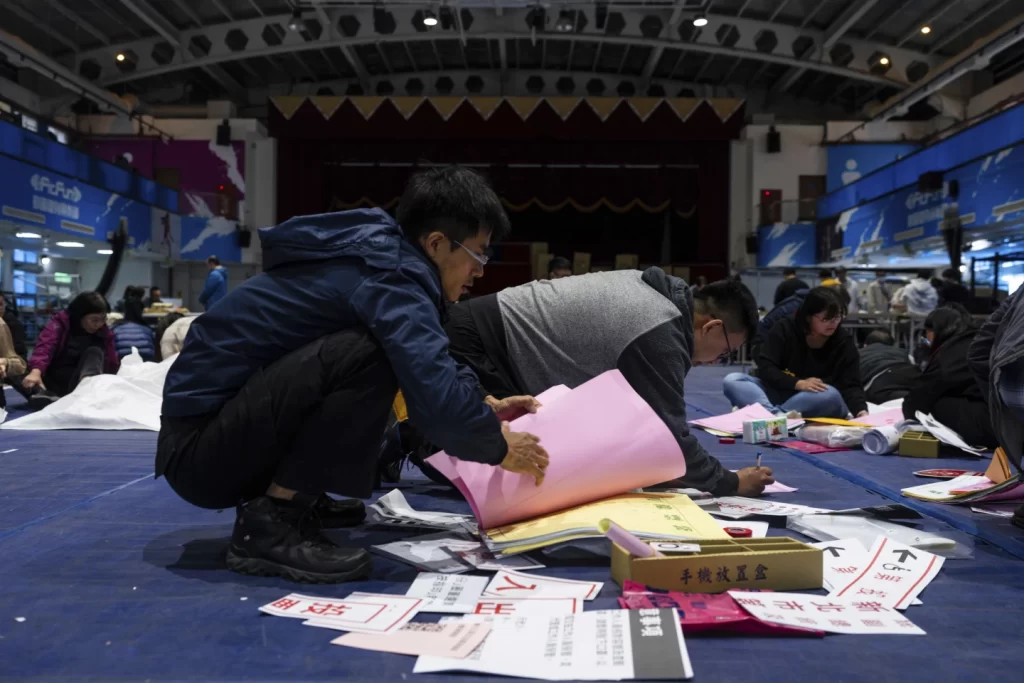
TAIPEI, Taiwan — Taiwan is preparing to elect a president and legislature Saturday in what many see as a test of control with China, which claims the self-governing island republic as its own territory to be unified with force if necessary. The presidential race is tight, and both China and Taiwan’s key ally, the U.S., are weighing in on political and economic issues they hope will sway voters.
The election pits Vice President Lai Ching-te, representing the Democratic Progressive Party, against Hou Yu-ih of the main opposition Nationalist Party, and former mayor of the capital Taipei, Ko Wen-je of the Taiwan People’s Party.
The U.S. strongly backs Taiwan against China’s military threats and the Biden administration plans to send an unofficial delegation comprised of former senior officials to the island shortly after the polls. That move could upset efforts to repair ties between Beijing and Washington that plunged in recent years over trade, COVID-19, Washington’s support for Taiwan and Russia’s invasion of Ukraine, which China has refused to condemn at the United Nations.
Candidates will make their final appeals Friday with campaigning to end at midnight. The candidate with the most votes wins, with no runoff. The legislative races are for districts and at-large seats.
Those threats were thrown into stark relief in 2022, when Beijing fired missiles over the island and conducted what was seen as a practice run of a possible future blockade of the Taiwan Strait after then-U.S. House Speaker Nancy Pelosi visited Taiwan. Chinese President Xi Jinping, at his most recent meeting with President Joe Biden in November, called Taiwan the “most sensitive issue” in U.S.-Chinese relations.
Washington is bound by law to provide Taiwan with the means to defend itself and consider all threats to the island as matters of “grave concern,” while remaining ambiguous on whether it would use military forces. Over recent years, the U.S. has stepped up support for Taiwan as Beijing ratchets up military and diplomatic pressure on the island, although the wars in Ukraine and Gaza have drawn down what U.S. military industries can provide to customers and allies.




